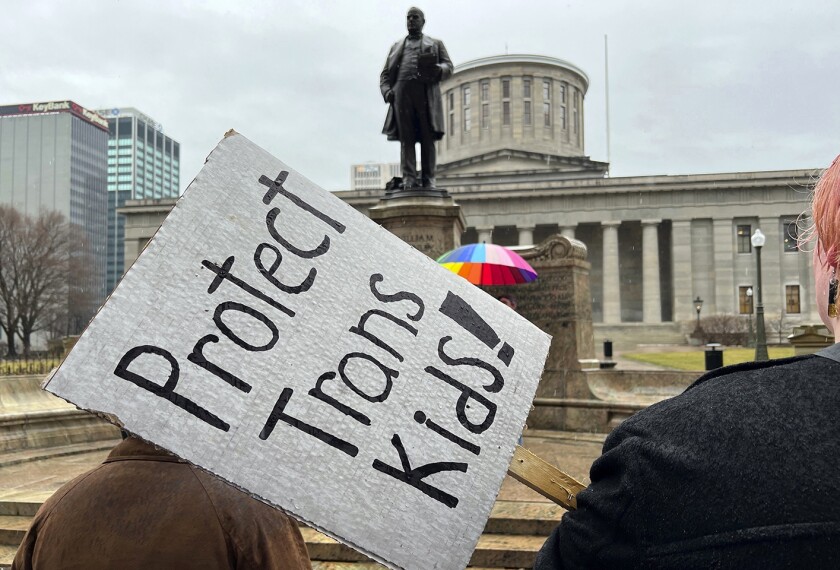Brigham Young University (BYU) is launching a medical school, the Church of Jesus Christ of Latter-day Saints said on Monday. But the announcement has raised questions.
"The First Presidency is pleased to announce the decision now to create a medical school at BYU," church officials wrote in a statement, which added that "unlike many medical schools, the BYU medical school will be focused on teaching with research in areas of strategic importance to the church."
The school will focus on "international health issues affecting members of The Church of Jesus Christ of Latter-day Saints" and the church's "worldwide humanitarian efforts," the university added.
It is not clear what "areas of strategic importance to the church" entails. Newsweek has contacted Brigham Young University for comment.
The Church of Jesus Christ of Latter-day Saints has historically opposed abortion but has deemed birth control a personal choice.
Daniel Sulmasy, director of the Kennedy Institute of Ethics and a professor of medicine and philosophy at Georgetown University, told The Salt Lake Tribune that he expects BYU's medical school to address the topic of abortion, approaching it in a similar way as his Catholic institution.
At Georgetown, students are instructed on abortion in the classroom, but there is no physical instruction on it, meaning the procedures are not performed or observed by students in any capacity.
"We teach people what an abortion is because people need to know that," he said. "They need to know what the consequences could be if someone has a complication."
He added that abortion is taught but not endorsed.
"I think that's the same kind of thing that would happen at a place like BYU," Sulmasy said.
It is unclear if BYU will provide LGBTQ+-specific health care. The accreditation requirements say students should be taught to be accepting of diversity within the field. It makes no mention of the LGBTQ+ community.
BYU came under fire in 2022 after canceling gender-affirming care for LGBTQ+ patients at its speech clinic, with the school announcing that voice therapy services, used to help transgender clients match the tone and pitch of their voice to their gender identity, did not align with the faith's policies.
The church provided no timeline for when the medical school will open, saying only that "specific target dates will be announced as they are set." When it opens, it will be the state's fourth medical school.
Utah has seen a shortage of doctors in recent years. As of 2019, the most recent data available, there were 21 physicians for every 10,000 people. Across the country, there are 29.9 doctors per 10,000 people, according to comparative data from the Utah Department of Health and Human Services. Utah has the ninth-fewest physicians per capita of any state, per the American Association of Medical Colleges.
Although the number of people applying to the University of Utah's medical school has steadily increased, the number of graduates seeking to do their residencies in the state has declined, with a 13 percent drop last year. The Association of American Medical Colleges' think tank has pointed to Utah's restrictive policies on abortion as the cause.
Abortion in Utah is legal up to 18 weeks. After that, inducing an abortion is a second-degree felony. The law includes exceptions for pregnancies "caused by rape or incest," pregnancies that put the mother's life at risk, or "if two doctors say the fetus has a lethal defect." However, rape and incest exceptions apply only if the crimes were previously reported to law enforcement officials.
Utah Governor Spencer Cox has championed BYU's future medical school as a way to address the shortage of doctors.
"This is great news not only for BYU but for all Utahns as we seek to increase educational opportunities for those looking to enter the medical profession and increase access to health care worldwide," he wrote on X, formerly Twitter.
It is not clear yet if BYU will ask for taxpayer funding. The Church of Jesus Christ of Latter-day Saints' investment arm, Ensign Peak Advisors, had stock holdings worth $54.7 billion as of late March in its publicly reported portfolio.
The BYU medical school will not create its own hospital or hospital system, the statement said.
Disclaimer: The copyright of this article belongs to the original author. Reposting this article is solely for the purpose of information dissemination and does not constitute any investment advice. If there is any infringement, please contact us immediately. We will make corrections or deletions as necessary. Thank you.







